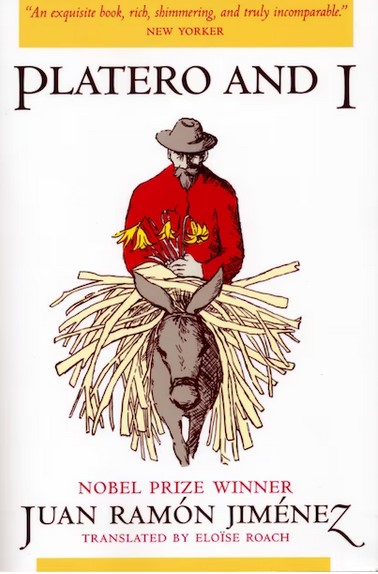humility with grace

While I would describe myself more spiritual than religious, The Donkey poem below has always seemed so simply elegant, so elegantly simple. I first encountered it in grade 12, reading it in my copy of New Horizons: An Anthology of Short Poems, a book passed to me from my older sister complete with our scribbled notes in the margins of poems we studied 5 years apart in our educational process – I still have the book, tattered and treasured. The poem celebrates the beginning of the Christian Holy week, the Sunday before Easter and the last week of Lent – the day Christ rode peacefully, regally, and triumphantly into Jerusalem on a donkey – true story or story of truth, and does it really matter. In my reading, the poem exudes grace, humility, reverence, and the majesty of the moment from a very unique perspective. The first line is brilliant and the last line so subtle, so perfect, the whole thing so universal and beyond the literal animal speaking its truth, its secret still kept:
The Donkey
When fishes flew and forests walked
And figs grew upon thorn,
Some moment when the moon was blood,
Then surely I was born;
With monstrous head and sickening cry
And ears like errant wings,
The devil’s walking parody
On all four-footed things.
The tattered outlaw of the earth,
Of ancient crooked will;
Starve, scourge, deride me: I am dumb,
I keep my secret still.
Fools! For I also had my hour;
One far fierce hour and sweet:
There was a shout about my ears,
And palms before my feet


2 Comments
Treena Rae Orchard
lovely, and yes the first and last lines are staggering in their potent beauty xo
Kathy Karn
Beautiful Don. Thank you.